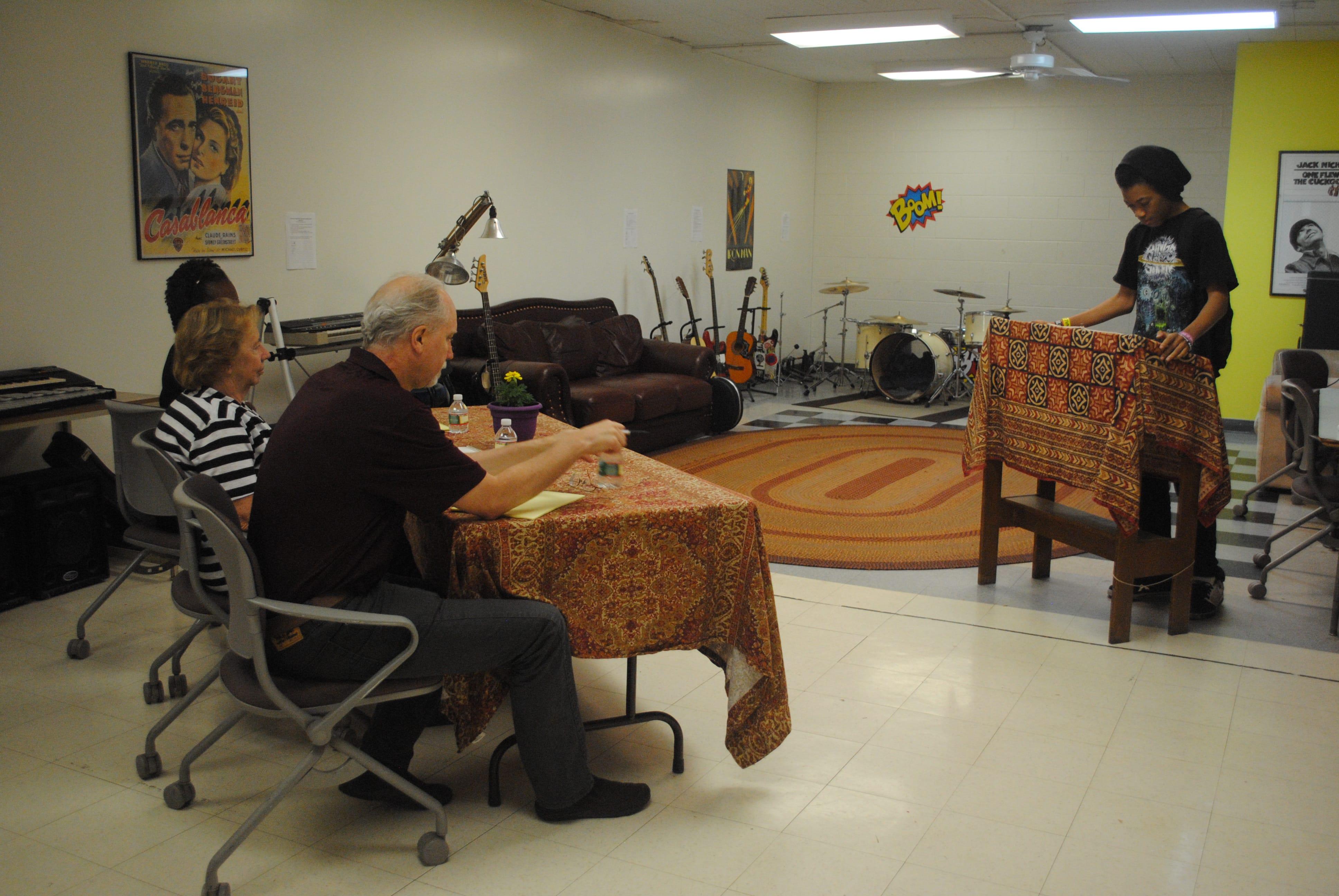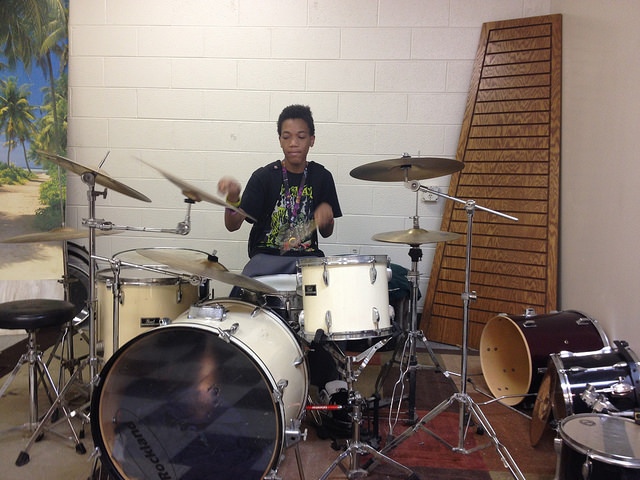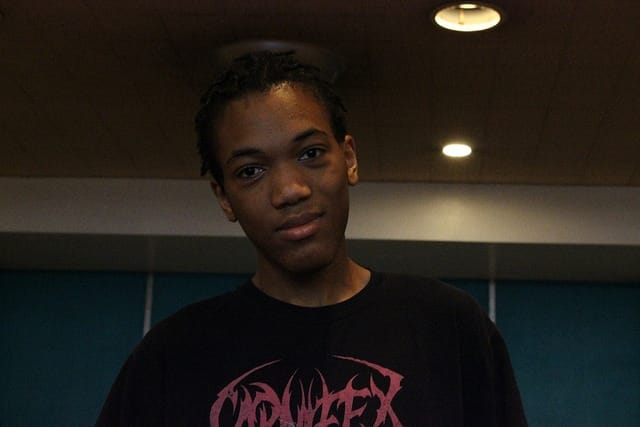Three Yes Votes by Michelle Loucas, PFS Staff

What follows is an interview I did with Desmond Lee, the first diploma candidate at the Philly Free School. These questions were asked shortly after Desmond successfully completed his thesis defense panel in May, 2015.
How was the thesis process for you?
It was a reflective process. I reflected back on what I did at the school and realized the good I gained from it, as opposed to what happened at the other schools I was at.
You learn a little more about yourself-- what you are good at, what you’re bad at, what you learned at this school.
What was the hardest part of the process?
Staying at the school another year. Convincing my family to let me stay another year so I could pursue the diploma process. I wasn’t ready the first year.
Then the hardest part was the presentation. Convincing this group of strangers that I was ready to go out into the world. I felt ready, but keeping my mind from going blank during the presentation was hard.
What was the best part?
When Joel walked into the music room and I was playing the bass. I said, “How are you feeling?” He said, “How are you feeling?” I said, “I’m feeling confident, regardless of the decision. I know I’m ready to go to into the world. What were the votes?” Joel said, “Unanimous decision: 3 yesses, no nos.”

What would you do differently if you could do it again?
I don’t think I got to know my thesis panelists enough. I should have done more preparation to get to know who I was dealing with, to get a sense of their personalities. I was hoping to spend more time with them the day before, and also read up on them.
What advice do you have for students who are trying to decide whether or not to pursue a diploma?
Personally, the way I see it, why not? If you feel confident that you’re ready to go out into the world, you can prove to these people that you are ready. I don’t feel you have anything to lose when going through this process.
What do you have to gain, if anything, in pursuing a PFS diploma?
You learn a little more about yourself-- what you are good at, what you’re bad at, what you learned at this school. You get the time to reflect, what you did well and what you did poorly, and how you are going to act on that moving forward, what you are going to change in the future.
What advice do you have for students who are pursuing the diploma?
- Get a solid thesis advisor. Someone with some experience, who you are confident writes well, who knows you, who will be completely honest with you.
- Make your thesis strong-- talk about what you learned and how you are going to use that in the world effectively.
- At your thesis defense: confidence is the key. Speak louder than the panelists. Make eye contact. Be yourself.
- For the written part-- don’t feel like you have to write too much or too little. Be genuine in what you write. Really mean what you are saying. Keep in mind the whole time while writing that you are trying to convince these people that you are ready to go out into the world.
- Set deadlines. It’s going to take a long time. Stay patient.

How should a candidate decide what to do during their presentation?
Your thesis is about your game plan-- what you are going to do in the world. That’s why for me I made sure to include music. The panelists are trying to get to know you as a person. They want to get a sense of who you are in different contexts. During my presentation, when I couldn’t find a guitar I needed, I was nervous but I stayed composed. They got a better sense of how I act under pressure, during unexpected events, and I think that might have influenced my yes votes.
What final words do you have to say about this process?
My final words are my first words: it’s a reflective process. I would still be equipped to explain to people in my future why I chose to graduate from this school and what I’ve done here, but this process made me feel more equipped.
Thank you Desmond, and best of luck going forward!
